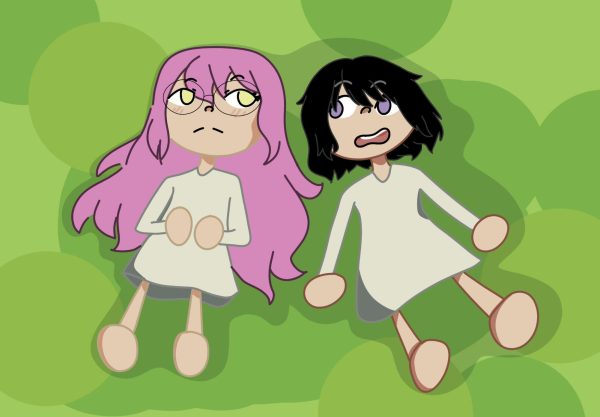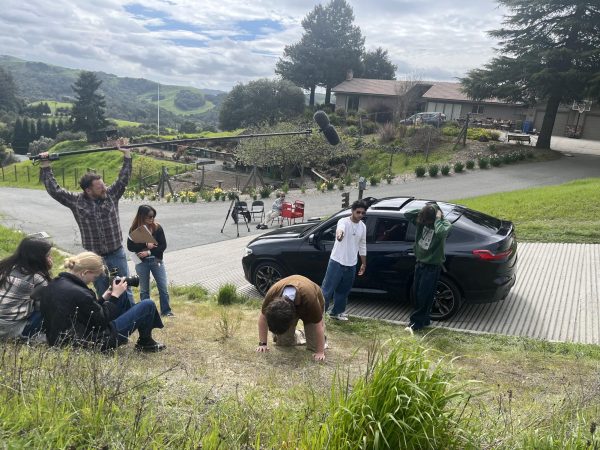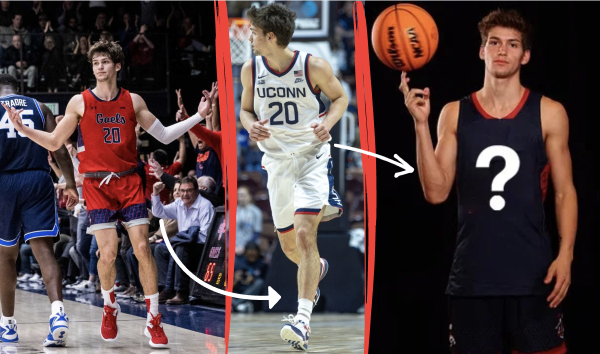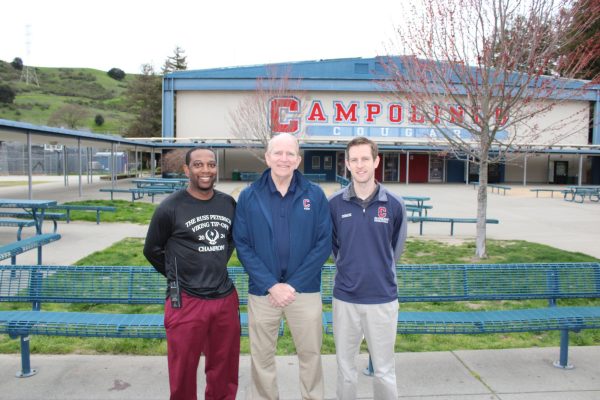Media Portrayal of Sexual Assault Raises Awareness, Triggers
TRIGGER WARNING: This article discusses sexual assault as portrayed in media.
We all become uncomfortable when witnessing certain topics in the media. Some classics include watching unsolicited sex scenes with your parents, enduring old dialogue that is no longer socially acceptable, and cringing over jokes that never landed. A more recent and new example of an uncomfortable topic arose in the 2022 release Where the Crawdads Sing. The movie follows protagonist Kya, a girl living alone in the marsh, who is accused of murder when a man she was affiliated with turns up dead.
Heading into this movie, I wasn’t sure what to expect, which is why I was completely stunned when the movie included a rape scene. While the scene did fit with the movie’s storyline, I could feel myself and the entire theater audience around me grow extremely uncomfortable while watching it. After the movie was finished, I couldn’t shake that uncomfortable feeling from the scene. The main question I had at 1st was, Why would the movie include such an awful scene? The movie would have been fine without it and the audience wouldn’t have had to go home with such a sick feeling in their stomach. However, that sick feeling is discomfort. It isn’t fun or enjoyable in the slightest to watch sexual assault scenes, acting or otherwise. But they’re important to show, because like some other uncomfortable topics, they happen every day to too many people.
Sophomore Lydia Pochueva saw Where the Crawdads Sing in theaters as well, but had to endure a different audience reaction. “In the movie theater, there was this 80 year-old man and he started laughing [during the rape scene]. And that made me more uncomfortable then, I think, anything else. And that made me feel just so disgusted with the situation… that entire feeling just absorbed me.”
Unlike the 80 year-old man, Pochueva said, “I was fully uncomfortable while watching. And that was the entire point that stuck with me. And as a girl, as someone who has to be ultra aware about it because I’ve been in situations where I’ve been warned about this kind of thing, that uncomfortability, I recognize that it needs to be there in order to better people [to have] that awareness… Uncomfortability is the driving force in change and we need that change… so we don’t end up as those 80 year-olds laughing.”
As sexual assault portrayal in media is more common now, most older generations did not receive education on the topic or exposure to it. This is why it’s so important to encourage the portrayal in media, as it increases exposure and knowledge on the subject. With more awareness about sexual assault, there will hopefully be less people who find it funny.
More and more movies and shows are depicting sexual assault, which inevitably raises awareness about it. How the scenes are portrayed and handled vary depending on the show. “I think that sometimes watching those scenes, it does make you uncomfortable, but I think that’s the whole point of them doing that. In a way sometimes you’re trying to spread awareness and they want you to be uncomfortable so you’re feeling the emotions. Not what the characters are necessarily feeling, [but] to be super in depth… I feel like [watching sexual assault] does make me uncomfortable but not in a way where I’d completely stop watching [the show],” said senior Briana Rose. Rose is a fan of both End of the F***ing World and 13 Reasons Why— 2 shows that incorporate sexual assault into their storylines.
“I feel like for people who unfortunately have had to deal with that in their life, it’s a way of [having] representation… and I know the media sometimes doesn’t necessarily cover stuff like that. In a way it’s representing people who have gone through this and it’s making people feel uncomfortable, which is showing that this is a real problem and not just [pretending that] this doesn’t happen… It’s an artistic way of representing people or bringing up a conversation when other media outlets won’t,” Rose said.
However, while sexual assault in media does bring awareness and can represent people who have experienced it, Rose added that it can be “overdone” and a source for audience triggers. “I remember when 13 Reasons Why came out, it was really controversial and everyone was like, ‘Some of these scenes shouldn’t be in there’ and to a certain point you can go overboard and trigger people instead of bringing awareness. So I think that there’s a line, but with most media I think that they are trying to do it for the right reasons.”
As sexual assault can be a very triggering topic, some shows include a trigger warning in advance. 1 example of this is Grand Army, which depicts a rape scene that includes a warning prior to the episode. “1 thing I appreciated about Grand Army was that [Netflix] did put a trigger warning, which I think is really good. And I know shows have started to do that a little more and I think that’s super important, just because you don’t know who your viewers are going to be,” said Grand Army fan senior Ellery Stankus.
While these shows are portraying sexual assault, they also have the ability to show the consequences for not only the predator, but also the victim. Many shows that include sexual assault include victims experiencing PTSD, victim blaming or just trauma in general.
Stankus said, “A big part of [Grand Army] is just [the main character] trying to deal with [the assault] and also [trying to] get her [rapists] to take responsibility for what they did, and so it covers and focuses a lot on sexual assault, but also victim blaming and this idea of rape culture and ‘boys will be boys’. And I really enjoyed the show. I thought it did a really good representation of how so many things aren’t really talked about or there’s so much victim blaming and brushing off of a lot of really harmful acts that happened and I thought it did a good job highlighting just how harmful and how traumatizing that can be for someone.”
Some shows such as Grand Army also discuss the idea of where bystanders play into the picture, specifically friends of those who have committed sexual assault. It can be easy to stay quiet because someone is your friend, which is a topic the show dives into. “It’s important to raise awareness and also to normalize speaking up about that and…believing people and calling out your friends because that was a big theme in the end, [not] covering up what your friends are doing just because they’re your friends, and I think that it did a really good job of showing how harmful and how bad that is,” Stankus added.
While Grand Army, 13 Reasons Why, and Where the Crawdads Sing all have rape as their form of sexual assault, other shows take advantage of the lesser known forms of sexual assault. Sex Education includes sexual assault via a stranger masturbating on 1 of the main characters while on the bus. The character at 1st was unaware that she had been assaulted as these smaller forms of sexual assault are less discussed in media and in general, which is why it’s so crucial that this kind of story is told. Sex Education not only shows that sexual assault does not have to mean rape, but that it’s still violating to anyone who experiences any form of it.
Sex Education fan junior Caleb Seligman said, “[The sexual assault scene] was pretty weird. I just thought about how it’s a good thing to talk about… At 1st I thought ‘What is this show? Why am I watching this?’, but I got deeper into it and I’m like, ‘Wait, this actually has some really good topics in it.’ It just brings awareness to what happens behind closed doors, what happens every day. It’s really easy to just ignore it. But when you see it in shows, you start to actually think about how often that happens.”
“[Sexual assault scenes are] really hard to watch, just knowing that, it’s not just a show and that that also happens in real life. So I think it’s important to include awareness about that, but it’s definitely not an easy thing to talk about or to view on a show for sure,” said Stankus.
Pochueva added, “[Sexual assault is] a disgusting thing. It will always be a disgusting thing… I definitely feel that if we’re able to at least, maybe not even through movies, but raise that uncomfortability around it, then there is more awareness, which in turn causes at least a bit of prevention, and a bit of prevention is better than none.”
Your donation will support the student journalists of Campolindo High School's The Claw. Your contribution will allow us to produce more issues and cover our annual website hosting costs.

Senior Maggie Doolittle has been a Girl Scout since kindergarten, racking up a total of 11 years in her troop. "I have continued [Girl Scouts] because...






